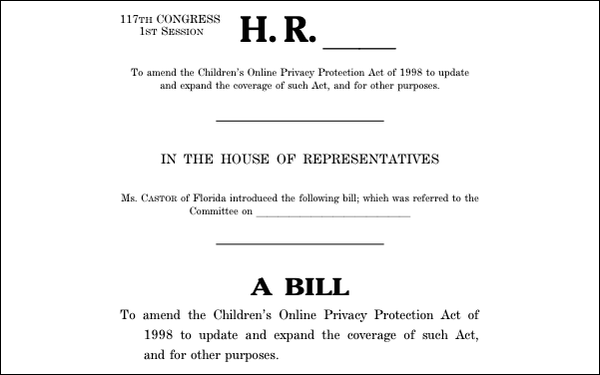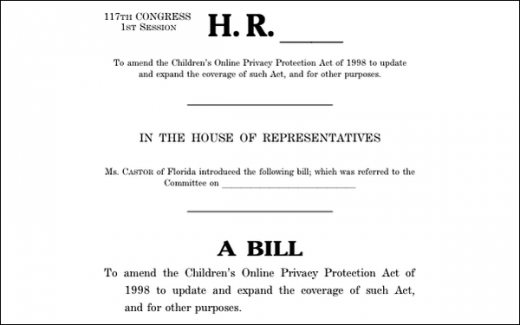New Bill Would Ban Behavioral Targeting Of Minors
New Bill Would Ban Behavioral Targeting Of Minors

This week, Facebook said it will ban companies from serving ads to users under 18 based on their online activity and their expressed interests.
Now, a new bill could require operators of other websites and apps that appeal to underage users to follow that policy. The Protecting the Information of our Vulnerable Children and Youth Act, introduced Thursday by Rep. Kathy Castor (D-Florida) would prohibit website and apps likely to be accessed by users under 18 from serving ads to those people based on their behavior or personal information.
The bill would also prevent those companies from collecting personal data from users between the ages of 13 and 17 without their explicit consent — except to the extent that the data is necessary to provide the service or support a company’s internal operations.
The proposed law also addresses so-called “dark patterns” with a provision that prohibits companies from obtaining teens’ consent through an interface aimed at “obscuring, subverting, or impairing user autonomy, decision-making, or choice.”
“Online and digital technology, tracking and data gathering have outpaced current privacy protections for children and consumers,” Castor stated. “Companies shouldn’t be allowed to unreasonably track and target children.”
The measure would update the federal Children’s Online Privacy Protection Act, which currently prohibits web companies from knowingly collecting personal information from children under 13 without their parents’ consent.
The current law tasks the Federal Trade Commission with defining personal information.
Initially the agency said the term covered names, addresses, or other data that could be used to contact a child. But in 2012, the FTC updated the definition to also include the types of pseudonymous information used by ad-tech companies that track people across websites and apps in order to serve them with personalized ads.
Castor’s bill explicitly specifies that personal information includes biometric data, browsing and search history, geolocation data, contents of messages and information, health information, education information, contents of messages and calls, browsing and search history, geolocation information, and latent audio or visual recordings.
Another provision of the bill would require companies to focus on the “best interests” of teens and children when designing services.
(29)


